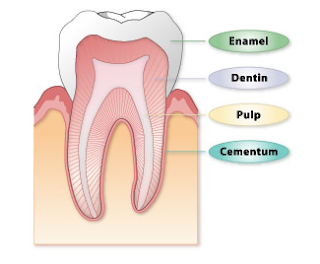Oral Cancer
Oral
cancer on the side of the tongue, a common site along with the floor of the
mouth
Source: Wikipedia
Mouth cancer, or oral cancer, can
occur anywhere in the mouth, on the surface of the tongue, the lips, inside the
cheek, in the gums, in the roof and floor of the mouth, in the tonsils, and in
the salivary glands. It is a type of head and neck cancer and is often treated
similarly to other head and neck cancers. Oral cancer can be life-threatening if not diagnosed and treated
early. Mouth cancer mostly happens after the age of 40, and the risk is more
than twice as high in men as it is in women.
Symptoms
The
most common symptoms of oral cancer include:
- A
sore that doesn't heal
- A
sore that bleeds
- A
growth, lump or thickening of the skin or lining of your mouth
- Loose
teeth
- Poorly
fitting dentures
- Tongue
pain
- Jaw
pain or stiffness
- Difficult
or painful chewing
- Difficult
or painful swallowing
- A sore throat
Make an appointment with your doctor
or dentist if you have any persistent signs and symptoms that bother you and
last more than two weeks. Your doctor will likely investigate other more common
causes for your signs and symptoms first, such as an infection.
Causes
Cancer
results when a genetic mutation instructs cells to grow without control.
Untreated, oral cancer will start in one part of the mouth, then spread to
other parts of the mouth, to the head and neck, and the rest of the body. Mouth
cancers typically start in the squamous cells that line the lips and the inside
of the mouth. This is called squamous cell carcinoma.
Risk
Factors
Factors
that can increase your risk of mouth cancer include:
- Smoking. Cigarette, cigar, or pipe
smokers are six times more likely than non-smokers to develop oral
cancers.
- Smokeless
tobacco users. Users of dip, snuff, or
chewing tobacco products are 50 times more likely to develop cancers of
the cheek, gums, and lining of the lips.
- Excessive
consumption of alcohol. Oral cancers are about
six times more common in drinkers than in non-drinkers.
- Family history of cancer.
- Excessive
sun exposure, especially at a young
age.
- Human papillomavirus (HPV).
Certain HPV strains are etiologic risk factors for Oropharyngeal Squamous
Cell Carcinoma (OSCC)
Diagnosis
A
biopsy may be carried out, where a small sample of tissue is taken to check for
cancerous cells. Sometimes a "brush biopsy" is used initially; this
where cells are painlessly collected by brushing them to one side.
If
mouth cancer is diagnosed, the next task is to determine the stage of the cancer.
Tests
include:
- Endoscopy, where a lighted scope is passed down the patient's
throat to see how far the cancer has
spread
- Imaging tests, such as X-ray, Computed Tomography (CT) scans,
and Magnetic Resonance Imaging (MRI) Staging cancer will inform treatment options and help predict
prognosis
Outlook
A
person who is diagnosed with stage 1 oral or pharyngeal cancer has an 83
percent chance of surviving for longer than 5 years. Around 31 percent of cases
are diagnosed at this stage.
For
those whose cancer spreads to other parts of the body, the chance of surviving
more than 5 years is 38 percent.
Treatment
Treatment
depends on the location and stage of the cancer,
and the patient's general health and personal preferences. A combination of
treatments may be necessary.
·
Surgery: Surgical removal of the tumour involves taking out the
tumour and a margin of healthy tissue around it. A small tumour will require minor surgery, but for
larger tumours, surgery may involve
removing some of the tongue or the jawbone.
·
Radiation Therapy: Oral cancers are especially
sensitive to radiation therapy, which uses beams of high-energy X-rays or
radiation particles to damage the DNA inside the tumour cells, destroying their ability to reproduce.A person with
early-stage mouth cancer may only need radiation therapy, but it can also be
combined with surgery, chemotherapy, or both, to prevent the cancer from returning.
·
Chemotherapy: Widespread cancer may be treated with
chemotherapy as well as radiation therapy, especially if there is a significant
chance of the cancer returning.Chemotherapy involves using powerful medicines
that damage the DNA of the cancer cells, undermining their ability to
reproduce.
·
Targeted Drug Therapy: Targeted drug therapy uses drugs
known as monoclonal antibodies to change aspects of cancer cells that help them
grow.Cetuximab, or Erbitux, is used for some head and neck cancers. Targeted
drugs may be combined with radiotherapy or chemotherapy.
Prevention
A number of lifestyle changes can
reduce the risk of mouth cancer.
- Stop
using tobacco or don't start. If you use tobacco, stop. If you don't use
tobacco, don't start. Using tobacco, whether smoked or chewed, exposes the
cells in your mouth to dangerous cancer-causing chemicals.
- Drink
alcohol only in moderation, if at all. Chronic excessive
alcohol use can irritate the cells in your mouth, making them vulnerable
to mouth cancer. If you choose to drink alcohol, limit yourself to one
drink a day if you're a woman or two drinks a day if you're a man.
- Eat
a variety of fruits and vegetables. Choose a diet rich in
fruits and vegetables. The vitamins and antioxidants found in fruits and
vegetables may help reduce your risk of mouth cancer.
- Avoid
excessive sun exposure to your lips. Protect the skin on
your lips from the sun by staying in the shade when possible. Wear a
broad-brimmed hat that effectively shades your entire face, including your
mouth. Apply a sunscreen lip product as part of your routine sun
protection regimen.
- See
your dentist regularly. As part of a routine dental exam, ask your
dentist to inspect your entire mouth for abnormal areas that may indicate
mouth cancer or precancerous changes.




Comments
Post a Comment